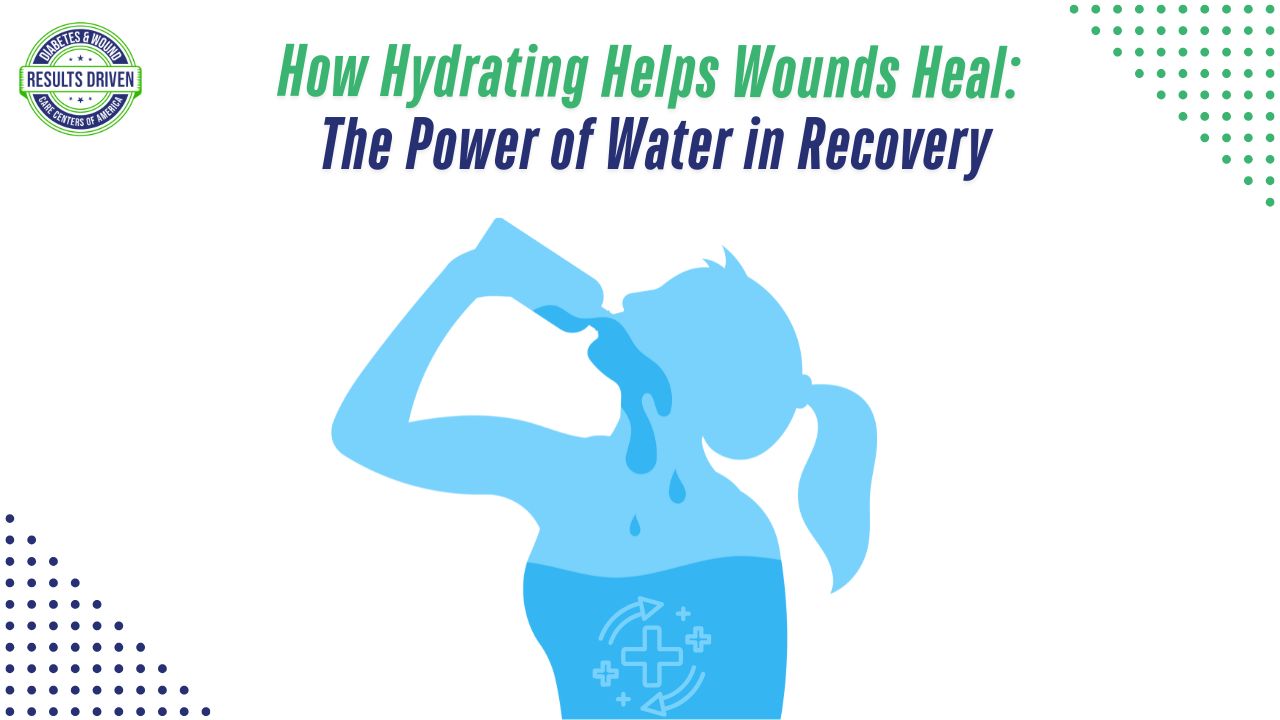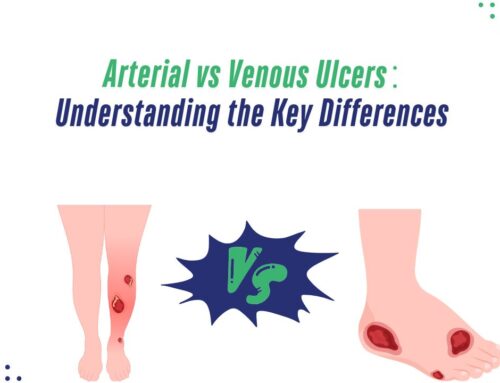How Hydrating Helps Wounds Heal: The Power of Water in Recovery
What if the simplest and most powerful tool for wound healing is something you already have access to? Water is often overlooked when it comes to recovery, yet it plays a vital role in every stage of the healing process. Staying hydrated isn’t just about quenching thirst—it’s about equipping your body with the resources it needs to repair damaged tissue, fight infections, and accelerate wound closure. Whether you’re dealing with a minor cut or a chronic wound, proper hydration can be a game-changer in your recovery. Let’s explore why water is a cornerstone of wound healing and how you can optimize this natural process for better results.
The Role of Hydration in Wound Healing
Water Fuels Cellular Function
Every cell in the human body relies on water to function properly, making hydration an essential factor in the healing process. When your body is well-hydrated, it ensures that key biological functions related to wound healing operate efficiently, including:
-
- Collagen production: Collagen is a protein necessary for skin and tissue repair. Water helps stimulate collagen synthesis, ensuring that wounds close properly and new tissue forms effectively.
- Oxygen delivery: Proper hydration supports blood circulation, ensuring that oxygen reaches the wound site. Oxygen is crucial for cell regeneration and preventing tissue breakdown.
- Inflammation control: Hydration helps the body regulate swelling and reduce pain by supporting the natural inflammatory response needed for healing.
A lack of water can slow these essential functions, leading to prolonged healing times and increasing the risk of complications.
Moisture Creates an Ideal Healing Environment
For wounds to heal efficiently, they need a moist environment. Hydrated cells migrate more effectively to close wounds, whereas dry, cracked tissue makes healing slower and more difficult. When the skin is dry, it becomes less flexible, which can cause wounds to reopen or take longer to close. This is why hydration works both internally and externally to improve the healing process.
Moist wound environments also reduce scarring, prevent infection, and minimize discomfort during recovery. By staying hydrated, you help your body maintain the necessary moisture levels to create optimal healing conditions.
Preventing Complications Through Hydration
Dehydration doesn’t just slow down healing—it increases the risk of infections and other complications. Proper hydration strengthens the immune system, helping the body fight off bacteria that could enter the wound site. When you’re dehydrated, your immune system weakens, making it easier for infections to develop.
Additionally, poor hydration can lead to delayed clotting, which is essential for stopping bleeding and kickstarting the healing process. If your body struggles to form clots quickly, wounds remain open longer, leaving them more vulnerable to infection and prolonged recovery times.
How to Stay Hydrated for Better Wound Healing
Drink Enough Water
Ensuring adequate daily water intake is one of the simplest and most effective ways to promote healing. Aim for at least 8–10 cups of water per day, but you may need more if you are actively recovering from a wound, live in a hot climate, or engage in regular physical activity.
A good way to monitor your hydration status is by checking your urine color. Pale yellow urine indicates proper hydration, while dark yellow or amber-colored urine suggests dehydration and the need for increased fluid intake.
Eat Water-Rich Foods
Drinking water isn’t the only way to stay hydrated—your diet also plays a role. Incorporating water-rich foods can support hydration while providing additional nutrients that aid in healing. Some of the best hydrating foods include:
-
- Fruits like watermelon, oranges, strawberries, and cucumbers, which have high water content and are packed with vitamins.
- Leafy greens such as lettuce and spinach, which help with hydration and offer essential nutrients.
- Broths and soups, which provide both fluids and electrolytes to support hydration balance.
By including these foods in your diet, you can further enhance your hydration levels and support faster wound healing.
Topical Hydration for Wound Care
Hydration isn’t just about drinking water—it’s also about keeping the wound itself hydrated. Using moisture-retentive dressings, such as hydrogels or hydrocolloids, can help create an optimal healing environment. These dressings keep the wound moist, allowing new skin cells to develop more efficiently and reducing the risk of scarring.
Applying wound care products recommended by your healthcare provider can also ensure that the wound site remains protected while receiving the necessary hydration to aid recovery.
Avoid Dehydration Triggers
Certain habits and environmental factors can lead to dehydration, slowing the wound-healing process. To stay hydrated, be mindful of:
-
- Caffeine and alcohol intake: These beverages act as diuretics, leading to increased fluid loss. While moderate consumption is fine, excessive intake can contribute to dehydration.
- Fluid loss from heat and exercise: Hot weather and physical activity cause sweating, which can deplete hydration levels quickly. If you are in a warm environment or engaging in exercise, increase your water intake accordingly.
- Medication side effects: Some medications, including those for diabetes and high blood pressure, can contribute to dehydration. Be sure to balance your water intake if you take medications that have diuretic effects.
By being aware of these dehydration triggers, you can take proactive steps to maintain proper hydration levels and support optimal healing.
The Link between Hydration and Overall Health
Hydration doesn’t just affect wound healing—it plays a role in your overall well-being. When your body is well-hydrated, it functions more efficiently, leading to better energy levels, improved digestion, and enhanced immune function. For wound healing specifically, hydration supports healthy skin elasticity, reduces the risk of excessive scarring, and strengthens your body’s natural ability to fight infections.
Proper hydration also plays a role in reducing inflammation, a key factor in managing chronic conditions such as diabetes and cardiovascular disease. By staying hydrated, you improve circulation, allowing nutrients and oxygen to reach vital organs and tissues more effectively.
Water, Your Secret Weapon for Healing
The next time you reach for a glass of water, think of it as more than just hydration—it’s an essential step in your body’s healing process. Water plays a crucial role in wound recovery, helping cells function properly, delivering oxygen to tissues, and preventing infections. Staying hydrated supports faster healing, reduces complications, and promotes overall health.
If you are recovering from a wound, managing a chronic condition, or simply looking to optimize your well-being, prioritizing hydration is one of the simplest yet most effective steps you can take. By drinking enough water, eating hydrating foods, and maintaining moisture at the wound site, you give your body the best chance to heal quickly and efficiently.
Never underestimate the power of water in wound healing. It might be the easiest yet most impactful tool in your recovery journey. Stay hydrated, stay healthy, and let your body do what it does best—heal and thrive.







